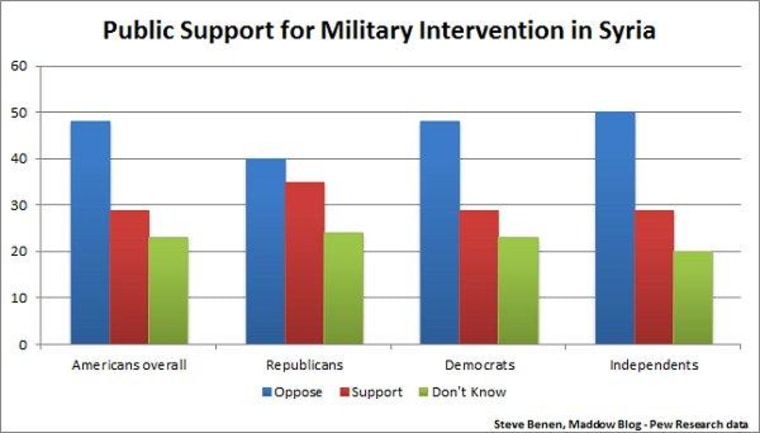If lawmakers intend to take their cues from the public on U.S. policy in Syria, the Obama administration is going to have to hope for a quick reversal of Americans attitudes.
President Obama faces an uphill battle in making the case for U.S. military action in Syria. By a 48% to 29% margin, more Americans oppose than support conducting military airstrikes against Syria in response to reports that the Syrian government used chemical weapons.The new national survey by the Pew Research Center, conducted Aug. 29-Sept. 1 among 1,000 adult, finds that Obama has significant ground to make up in his own party. Just 29% of Democrats favor conducting airstrikes against Syria while 48% are opposed. Opinion among independents is similar (29% favor, 50% oppose). Republicans are more divided, with 35% favoring airstrikes and 40% opposed.
I put together the above chart to help highlight just how limited the partisan differences really are. Yes, self-identified Republican voters tend to support military intervention slightly more than Democrats and Independents, but generally speaking, notice how similar the reactions are across the board.
As for why a plurality of Americans oppose U.S. military strikes, 74% believe military intervention in Syria are likely to create a backlash against the United States and its allies in the region, while 61% fear a long-term U.S. military commitment there.
The White House's argument -- strikes will be effective in discouraging the use of chemical weapons -- is endorsed by just a third of the country. A majority of Americans believes that the Assad government did, in fact, use chemical weapons, but that doesn't seem to be swaying broader public attitudes.
